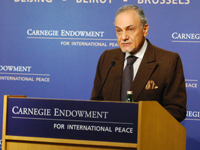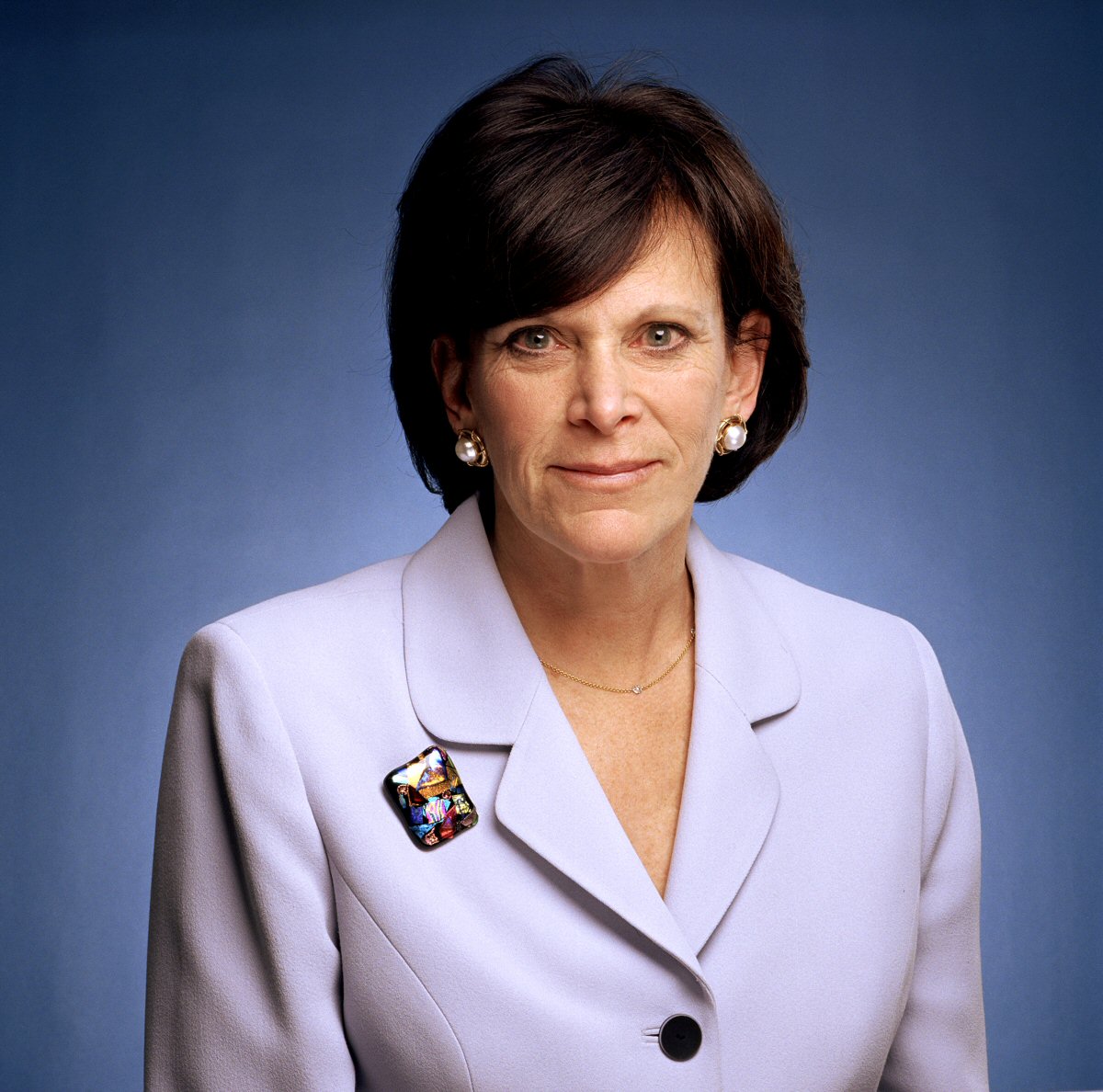{
"authors": [
"His Royal Highness Prince Turki Al-Faisal",
"Jessica Tuchman Mathews"
],
"type": "event",
"centerAffiliationAll": "dc",
"centers": [
"Carnegie Endowment for International Peace",
"Malcolm H. Kerr Carnegie Middle East Center"
],
"collections": [],
"englishNewsletterAll": "menaTransitions",
"nonEnglishNewsletterAll": "",
"primaryCenter": "Carnegie Endowment for International Peace",
"programAffiliation": "MEP",
"programs": [
"Middle East"
],
"projects": [],
"regions": [
"Middle East",
"Israel",
"Palestine",
"Saudi Arabia",
"Gulf",
"Levant"
],
"topics": [
"Political Reform",
"Security"
]
}
The Heart of the Conflict in the Middle East
Thu, November 4th, 2010
Washington, D.C.
His Royal Highness Prince Turki Al-Faisal, one of the founders of the King Faisal Foundation and chairman of the King Faisal Center for Research and Islamic Studies in Riyadh, discussed the current state of the Middle East peace process and the Saudi-U.S. relationship. Carnegie President Jessica T. Mathews moderated.
Prince Turki suggested that the West, led by the United States, could play an important role in eradicating many of the numerous regional crises in the Middle East through a robust effort to solve the seminal problem of the region, the Arab-Israeli conflict. He reiterated the Saudi stance on peace, as evidenced by King Abdullah’s 2002 Arab Peace Initiative, and called upon the United States and Israel to work for a true just and lasting peace.
Reaffirming the Terms of the Arab Peace Initiative
Al-Faisal offered a prescription for reviving the peace process based on adherence to the terms of the 2002 Arab Peace Initiative:
- Collective peace and security in exchange for land: The Arab Peace Initiative, engineered by King Abdullah of Saudi Arabia, proposed the normalization of relations between the Arab states and Israel in exchange for the latter’s withdrawal from the occupied territories (including East Jerusalem). According to al-Faisal, the Arab Peace Initiative–if implemented–would lay the groundwork for negotiating a just and mutually agreed settlement for the Palestinian refugees.
- Redressing Palestinian grievances: Al-Faisal called on the international community to respond to the plight of the displaced Palestinians who, he asserted, have “for too long been denied justice and the basic human rights that we take for granted.”
- An illegal occupation: Al-Faisal defined Israel’s continuing occupation of lands seized in 1967 as illegal under international law, and stressed that the language of UN Resolution 242—which called for the withdrawal of Israeli forces from territories occupied during the Six Day War—“leaves no room for ambiguity.” He added that Israel’s actions in Gaza in particular are unjustifiable, referring to the Goldstone Report’s conclusion that Israeli actions during the war rose to the level of war crimes and possibly crimes against humanity.
A Contagious Conflict
Not only have the decades of conflict exacted devastating tolls on Israeli and Palestinian populations, they have also wreaked havoc in neighboring states by spurring violence and inflaming extremist movements, al-Faisal said.
- Spillover into Lebanon: “The conflict has spread like a cancer across borders,” al-Faisal said. He noted the damaging effects of Israeli aggression on Lebanon, where thousands of civilians have been killed in conflicts with Israel. In addition to the heavy death toll, the Shi’ite group Hizbollah has capitalized on Israeli interventions. It has used the potential threat posed by Israel to mobilize its followers and consolidate its control of the national government, which has hurt Lebanon’s overall stability, al-Faisal said.
- Radicalizing the region: The Arab-Israeli conflict has served as a powerful catalyst for radicalization throughout the Middle East. Extremist groups have cited the grievances of the Palestinian refugee community as justification for acts of terrorism and political violence. But resolving the conflict would substantially dampen the appeal of extremism throughout the region, al-Faisal asserted. Therefore, Western democracies have a real strategic interest in achieving “a true and lasting peace.”
Strategies for Reviving the Peace Process
Al-Faisal expressed his fear that Republican gains in the U.S. House of Representatives could facilitate the resurgence of a hawkish coalition favoring American military interventions in the Middle East and advocating unconditional support for Israel. He called on American officials to “help bridge impasses,” and offered several prescriptions to guide U.S. policy-makers in their efforts to revive the peace process.
- Military action against Iran will not advance the peace process: Some members of the U.S. policy community have argued that the U.S. must project “strength and resolution on the Iran nuclear challenge” in order to facilitate a resolution of the Israeli-Palestinian conflict, but al-Faisal dismissed this as a “fallacious and dangerous argument.” “Claiming that the U.S. must take military action against Iran to push forward the Israeli-Palestine peace process is to attempt to harvest apples by cutting down the tree,” he said.
- Resurrect the Arab Peace Initiative: According to al-Faisal, the United States could substantially advance the peace process by expressing a commitment to the terms of the Arab Peace Initiative and urging Israel to do the same.
- Freeze settlements: The renewal of a moratorium on settlements could generate enough confidence among Palestinian leaders to reopen negotiations. Al-Faisal rejected the claim that expanding settlements is necessary to guarantee Israel’s security, and called on U.S. officials to support a freeze.
- Reject double standards: Citing Saudi Arabia’s longstanding commitment to counter-terrorism measures, al-Faisal called on the United States to oppose Israeli aggression just as vigorously as it denounces militant extremism. The key to resolving the Arab-Israeli conflict, he said, lies in accepting universal “standards of behavior that recognize the rule of law over the rule of force.” Until Israel demonstrates compliance with these standards by withdrawing from the occupied territories, al-Faisal said, Saudi Arabia will refuse to engage directly or indirectly with Israel. “For us to take any steps toward any form of normalization with the Israeli State before these Arab lands have been returned to their rightful legitimate owners would undermine international law and turn a blind eye to immorality,” he said.
Carnegie does not take institutional positions on public policy issues; the views represented herein are those of the author(s) and do not necessarily reflect the views of Carnegie, its staff, or its trustees.
